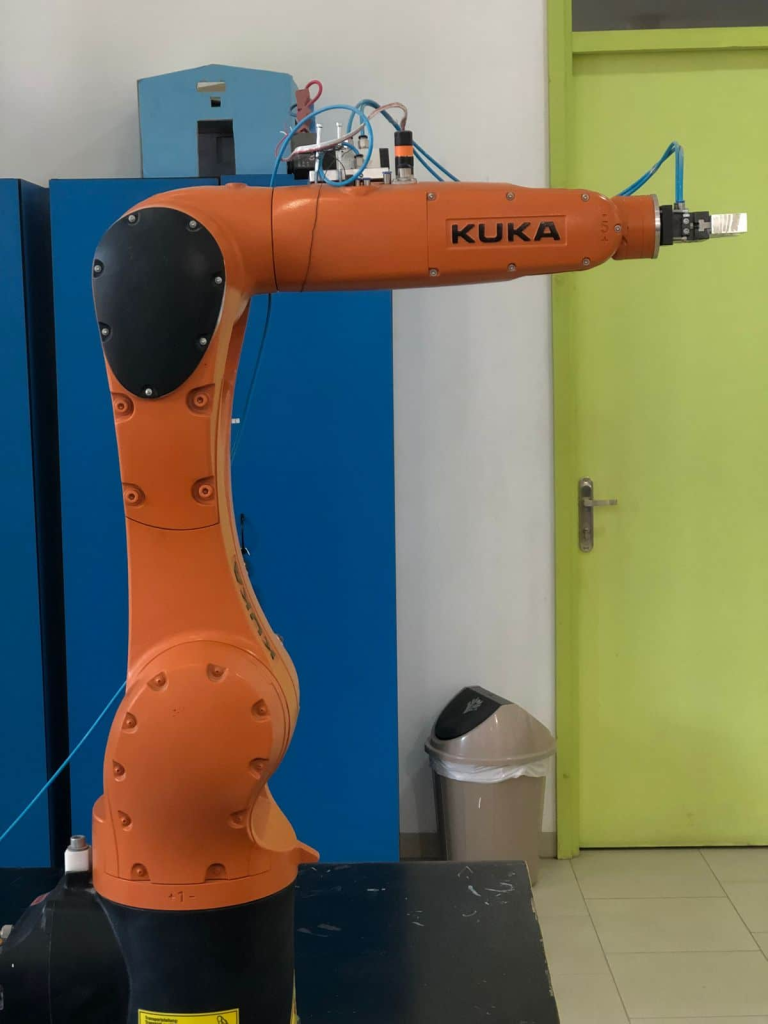Engineering Programs
2
undergraduate majors and programs
Mechatronics Program
Mechatronics Engineering is an interdisciplinary field that combines mechanical engineering, electrical engineering, electronics, and information technology to create intelligent products and industrial control systems. The Mechatronics Engineering Department at Heliopolis University’s Faculty of Engineering offers a Bachelor’s program in Mechatronics Engineering, focusing on equipping students with both theoretical knowledge and practical skills to design and maintain smart systems. The program spans 10 semesters, with students completing a minimum of 170 credit hours of coursework.
The curriculum is structured to provide students with a comprehensive understanding of mathematics, science, engineering basics, sensors, actuators, drives, PLC and control systems, mechatronic systems, and relevant software tools for task-specific system development.
Upon graduation, students have a wide range of career options in industries such as manufacturing, robotics, automotive, aeronautical engineering, building services, and research and development. Graduates can also pursue advanced studies in mechatronics or related fields at prestigious institutions worldwide.
Mission Statement:
“To establish a reputation for producing nationally and regionally recognized mechatronics engineers by delivering high-quality education in mechatronics engineering through exceptional teaching, research, and entrepreneurship.”
Program Aims:
The mechatronics engineering program at HU aims to equip graduates with:
• Comprehensive engineering knowledge covering mechanical, electrical, control, and computer engineering, along with their integration.
• Technical competencies in mechatronics engineering to identify, diagnose, and solve engineering problems of varying complexity.
• Analytical and practical skills, along with modern engineering tools for designing mechatronic systems.
• Understanding of environmental, social, and ethical issues, and the promotion of sustainability principles.
• Strong teamwork abilities to effectively collaborate and communicate while solving technical challenges in a multidisciplinary setting.
• Leadership skills, knowledge of business administration, and entrepreneurial capabilities.
• The capacity to innovate, develop, and embrace new educational pathways.
Laboratory Facilities
– Robot: KUKA KR 6 R900 sixx:
KUKA KR 6 R900 sixx 6 DOF serial robot is employed for the translation and rotation motions of the actuator mechanism that is assembled onto the tip of the industrial manipulator. 6 kg payload and ±0,02 mm repeatability capability values are provided with the robot supplier. It provides a wide range of working space areas with high precision, also supplying real-time data for control feedback.


MecLab®
MecLab® learning system essentially consists of three individual stations that have different functions: The Stacking Magazine station contains a workpiece storage container and a feed separator. The Conveyor station can transport and sort workpieces. The Handling station can grip the workpieces and deposit them at defined points.


Pneumatic and Electro-Pneumatic Lab
Pneumatic and Electro-Pneumatic Lab provide hands-on experience in pneumatic and electro-pneumatic systems. This lab is equipped with training modules and industrial-grade components that enable students to learn about the principles, design, and application of pneumatic circuits and control systems.

Programmable logic Control (PLC) Lab
The Programmable Logic Control (PLC) Lab features Siemens PLC modules and offers an immersive environment for students to learn and apply PLC programming. Utilising diverse programming languages, students control various mechanical and electrical components, gaining hands-on experience in automation and process control.

Microcontroller Lab
The Microcontroller Lab’s primary focus is on instructing students in utilizing C programming to manage various devices and applications using PIC and AVR microcontrollers. Through these modules, students acquire the skills to create, code, and resolve issues in embedded systems, gaining essential hands-on experience necessary for crafting inventive solutions within the mechatronics and electronics sectors.

Logic Design Lab
The Logic Design Lab is equipped with electronic kits that allow students to conduct experiments pertaining to the logic design course. It offers a hands-on setting for students to delve into and grasp essential principles in digital logic, encompassing circuit design, testing, and analysis. This experience readies them for further studies and practical applications in electronics and mechatronics.

Actuators Lab
The Logic Design Lab is equipped with electronic kits that enable students to perform all the experiments related to the logic design course. This lab provides a practical environment for students to explore and understand fundamental concepts in digital logic, including circuit design, testing, and analysis, preparing them for advanced studies and applications in electronics and mechatronics.

Microprocessor Lab
This lab contains microprocessor kits that can help the students to conduct all of the experiments and practical activities of the microprocessor course.


Department of Civil (Water Program)
Water Engineering Program Overview
• Covers traditional aspects of civil engineering and water engineering issues.
• Includes topics like hydraulics, hydrology, environmental engineering, water treatment, irrigation, and GIS.
• Special topics include desalination, irrigation management, hydro-informatics, and water resources engineering.
Importance and Applications of Water
• Essential for urban projects, industrial processes, and agriculture.
• Source of renewable energy (water turbines, tidal energy).
• Promising technologies: water desalination and humidification.
Career Opportunities for Graduates
• Conventional civil engineering fields: wastewater treatment, geotechnical work, and structural design.
• Job prospects in industries like academia, government bodies, consultancies, and R&D.
• Potential for further studies in water sciences and related disciplines.
Program Structure
• Bachelor of Science in Water Engineering.
• 8 semesters with at least 144 credit hours.
• Curriculum includes water sciences fundamentals, environmental issues, social and economic aspects, and software tools for water process management.
Mission Statement
• Develop distinguished engineers for safe, sustainable, and economic projects.
• Water Engineering Program provides high-quality education per NARS2018.
• Graduates can design, construct, manage water engineering projects, and contribute to community services in Egypt.
Program Aims
• Focus on water engineering, low-cost technologies, and smart solutions.
• Practical application of modern water-saving technologies for climate-resilient systems.
• Enhance academic and practical skills for successful careers in industry and academia.
Key Abilities Developed
• Apply interdisciplinary knowledge in construction, environmental, and water engineering.
• Demonstrate scientific principles and analytical skills for designing systems.
• Engage in continuous self-improvement and lifelong learning.
• Develop team and communication skills for multidisciplinary problem-solving.
• Innovate and adopt new directions in advanced education.
Outcomes of the Water Engineering Program
• Master engineering knowledge and apply it in real-life situations.
• Solve complex engineering problems with critical and systemic thinking.
• Adhere to engineering ethics and lead diverse teams.
• Promote sustainability and use modern engineering tools.
• Engage in lifelong learning, effective communication, and demonstrate leadership.
Career Prospect
• Graduates equipped with skills in water treatment, desalination, and water engineering.
• Contribute to developing water-climate resilient systems and future water-saving solutions.
Laboratory Facilities
Hydraulics Laboratory:
Open Channel Model for experimenting all types of hydraulics phenomena in open channel


How to Apply?
- You Apply
Tell us a little about yourself and we’ll help with the rest. Our convenient online application tool only takes 10 minutes to complete.
- We Connect
After you submit your application, an admissions representative will contact you and will help you to complete the process.
- You Get Ready
Once you’ve completed your application and connected with an admissions representative, you’re ready to create your schedule.

